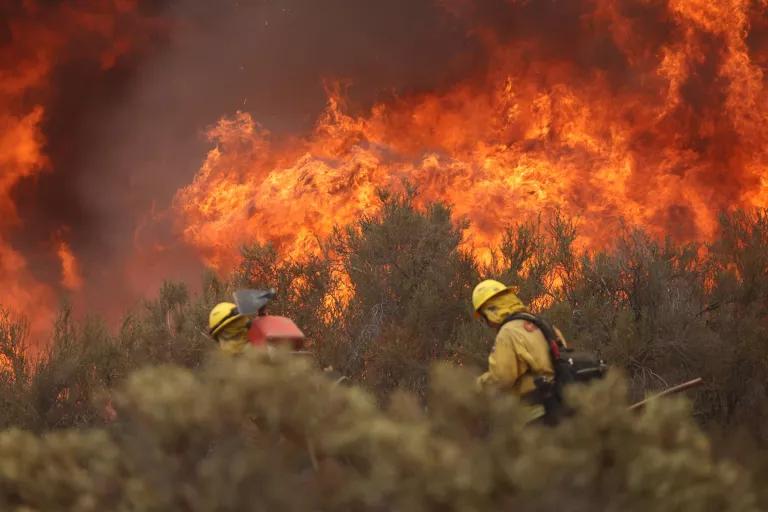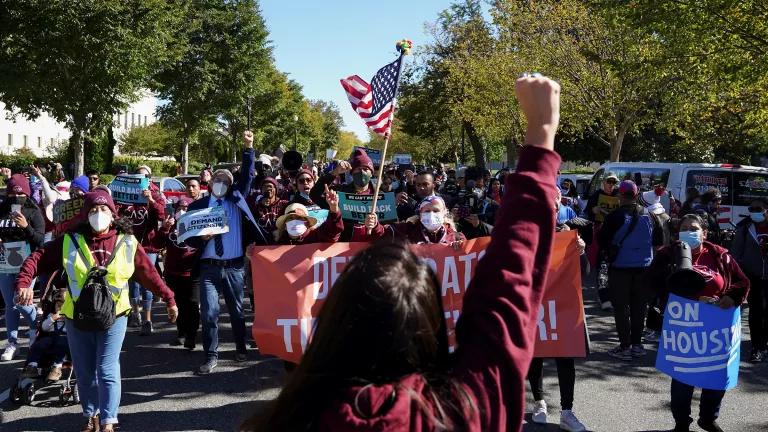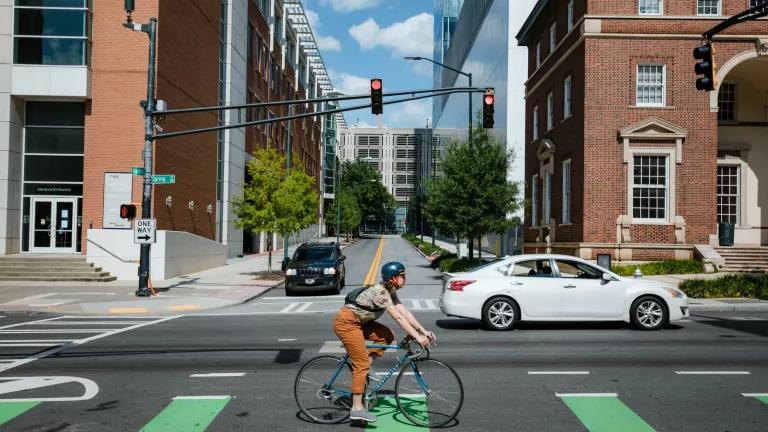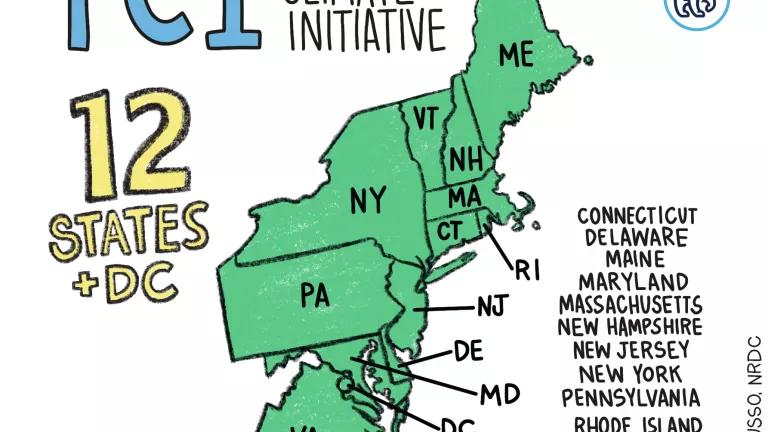Celebrating Climate Action—and Charting the Course Ahead
In this summer of climate calamity, our government has no more important job than to protect the people it serves.

A Gamesa 2MW wind turbine at the Flatirons Campus of the National Renewable Energy Laboratory (NREL) in Arvada, Colorado
President Joe Biden will cap a signature achievement on Tuesday when he hosts a White House gathering to celebrate the sweeping climate, tax, and health care bill he signed into law last month.
There’s reason, and then some, to cheer.
The Inflation Reduction Act, as it’s formally called, contains the strongest climate action in U.S. history—$369 billion, over 10 years, in strategic investment to help cut the dangerous carbon pollution that comes from burning fossil fuels.
In this summer of climate calamity—at home and abroad—Congress finally took action and passed the bill, thanks to the leadership of Speaker of the House Nancy Pelosi and Senate Majority Leader Chuck Schumer.
Through clean energy tax credits, rebates, and other powerful incentives, this new climate law will position the country to cut carbon pollution and other greenhouse gases 40 percent below 2005 levels by 2030. That takes us a long way toward meeting Biden’s pledge to cut those emissions by 50 to 52 percent, as the science says we must, to avert climate catastrophe.
To help us get the rest of the way there, the administration is using its well-established authority under existing law to develop rules that will limit carbon pollution from the nation’s cars, trucks, power plants, and industry; reduce emissions of two other powerful greenhouse gases—methane and hydrofluorocarbons; improve the efficiency of buildings and appliances; and keep investors apprised of corporate climate risks.
Separately, and in addition, the administration is writing standards to cut air pollution from power plants and other industrial facilities that burn fossil fuels.
These rules will reduce hazardous air pollutants, like the ground-level ozone that causes smog and the fine particles that produce soot, as well as mercury, acid gases, and other dangerous pollutants known to cause asthma attacks, aggravate bronchitis, and contribute to heart ailments and even premature death.

Emissions from the Valero Houston Refinery located on the Houston Ship Channel rise over homes in the Harrisburg/Manchester neighborhood in Houston, Texas.
Taken together, the administration is developing a suite of safeguards as part of the government’s most important job: to protect the people it serves from ongoing risks and emerging threats. In this case, that means confronting the climate crisis and cutting air pollution from burning fossil fuels.
To support this critical work, NRDC is standing with more than 160 environmental, youth, justice, and public advocacy groups as part of the Solutions for Pollution campaign for clean air and a healthy climate, organized by our partners with the Climate Action Campaign. Together, we’ll be helping to explain what’s at stake in this mission for our families, communities, country, and world.
Climate change and fossil fuel pollution extract a heavy toll from the country, an estimated $820 billion in health costs each year.
In mid-July, a third of the country was simmering in temperatures high enough to trigger heat stroke and send people to the emergency room. Warming temperatures extend the range and seasonal activity of mosquitoes, ticks, and other insects that spread vector-borne illness like malaria and the Zika virus. Smog aggravates asthma and may worsen cardiovascular conditions, leading to lost time at work or school. And microscopic soot particles from burning fossil fuels cause respiratory disease and other illnesses that are responsible for more than 100,000 premature deaths each year.
Climate change, in addition, makes floods, storms, wildfires, and related disasters more devastating, resulting in nearly $153 billion of nationwide damages in 2021 alone.

Firefighters work to contain flames and smoke from the Fairview Fire in Southern California on September 8, 2022.
California Department of Forestry and Fire Protection (CAL FIRE)
If the costs of inaction are high, the value of acting is even higher.
More than 3.2 million people across the country go to work each day helping us make our homes and workplaces more efficient, so we do more with less energy waste; get more clean power from the wind and sun; speed the shift to electric cars; and build a modern, reliable power grid and storage system.
The climate bill Biden signed into law last month will accelerate those activities, creating hundreds of thousands of jobs in communities across the country.
It includes tax credits, rebates, and other powerful incentives to help the nation get more clean power from the wind and sun; cut carbon pollution from power plants and industry; make electric cars, new and used, more affordable for low- and middle-income drivers; cut the cost of installing rooftop solar panels, heat pumps, and other energy-efficient household appliances; and promote climate-smart agricultural and conservation practices.
These incentives are already spurring domestic manufacturing growth in the clean energy sector. Since the climate package was enacted, a string of multibillion-dollar projects have been announced to make solar panels and electric car batteries in North Carolina, Tennessee, and elsewhere.
This climate and clean air action makes a major down payment on urgently needed progress in environmental justice. Low-income communities and people of color bear a disproportionate share of the costs and dangers of climate hazard and fossil fuel harm. The climate package invests $60 billion in overburdened communities, and standards that enhance air quality will improve the health of people living on the frontlines of industrial pollution.
Finally, by accelerating the shift to cleaner, healthier ways to power our future, these investments will help the United States to break its independence on the fossil fuels that are holding our families and businesses hostage to global price shocks beyond our control and padding the war chests of belligerent petro-states. That’s the way to achieve genuine energy security.
Our government has no more important job than to protect the people it serves from ongoing risks and emerging threats. Congress and the Biden administration are working together to confront the mounting hazards of climate change and air pollution. Our families, our communities, and our country will be all the stronger for it. That’s something everyone can celebrate come Tuesday.



